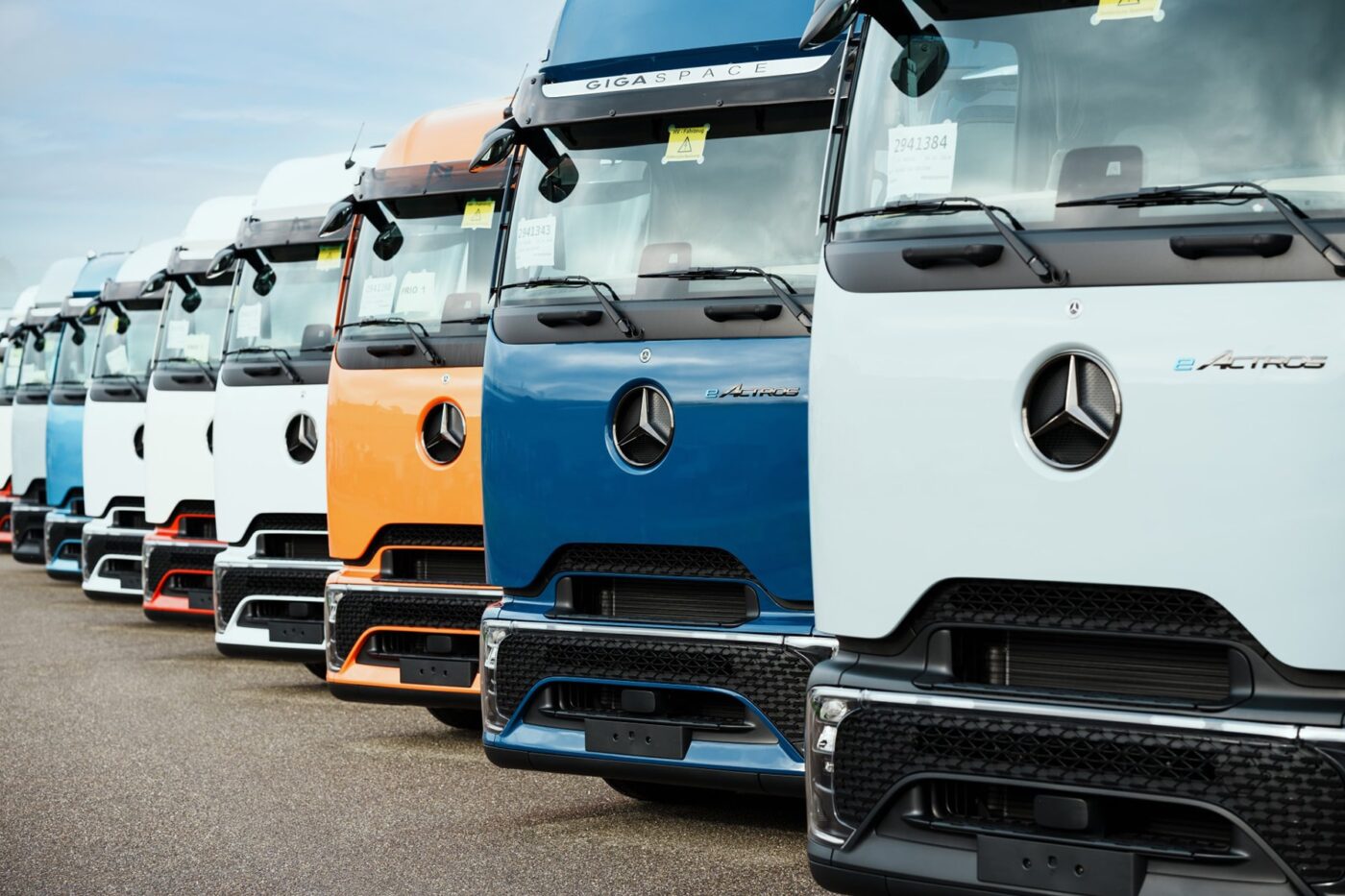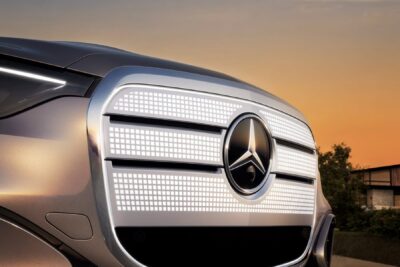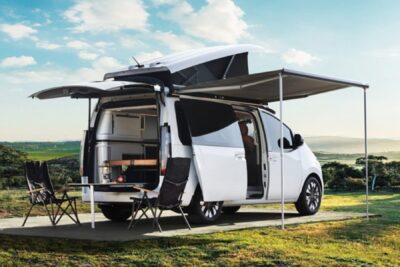Austerity measures at Daimler Truck: investment in battery trucks capped, H2 truck postponed
Daimler Truck has outlined these cuts in a new strategic roadmap called ‘Stronger 2030’, which aims to increase the company’s profitability and resilience. With the modified Group strategy, the management around CEO Karin Rådström is responding to ‘unpredictable dynamics caused by external factors’ – specifically, energy prices, changing subsidies and regulatory requirements and ‘the varying speed of decarbonisation in core markets’. The Group management has now announced the details of the roadmap at its own Capital Markets Day 2025 at the US production plant in Cleveland.
It is therefore clear that Daimler Truck (especially in the USA) is once again investing more in the competitiveness of its diesel platform and is weighing up between in-house production and outsourcing for its battery-powered trucks in future. The company intends to take a ‘pragmatic’ approach. On the other hand, the DAX-listed company has also announced that, depending on market acceptance, it will switch to zero-emission drive platforms customised for trucks. Daimler Truck is not more specific at this point. However, the approach shows that the company wants to position itself more flexibly regionally. The management explicitly emphasises that it wants to complete the transformation ‘at the right speed’ and carefully weigh up future investments in diesel and zero-emission technologies – with the help of a ‘modular technology strategy, flexible investments, partnerships and the use of global economies of scale’.
Start of series production of the H2 truck postponed by years
The future hydrogen truck GenH2 Truck is being deprioritised as a result: Its planned series production will be postponed from 2027 to the early 2030s. This is because: ‘The expansion of hydrogen refuelling stations is progressing much more slowly than expected,’ writes the Group. As is known, pre-series vehicles of the GenH2 Truck started customer trials in mid-2024. Regular operation in the near future will now come to nothing. In addition to the postponement of the start of series production, the Group is also expecting lower volumes. Furthermore, the Group is initially focussing the development of hydrogen drives only on Europe.
From now on, Daimler Truck intends to adapt its regional drive strategy even more closely to the dynamics of its core markets. This applies in particular to the North American market, “speed of zero-emission vehicle adoption has slowed down,” as the management team stated. This is now prompting the Group to reduce its investments in zero-emission drive platforms there. The battery joint venture Amplify Cell Technologies, founded in 2024 with Paccar and the Cummins division Accelera, is also to be ‘adapted to the market outlook’ as part of this process.
Daimler Truck does not provide any specific annual figures for the phase-out of the combustion engine in its modified Group strategy. Until now, the company has always stated that it only wants to offer new vehicles in Europe, Japan and North America that are CO2-neutral in operation by 2039. The long-term goal of the Stuttgart-based company has always been CO2-neutral transport on the roads by 2050.
“The right technologies at the right time”
Andreas Gorbach, Member of the Board of Management of Daimler Truck, responsible for Truck Technology, once said that he wanted to massively reduce the CO2 emissions of his own truck fleet by 2030, even beyond the politically fixed limits. Daimler Truck wanted to be a pioneer. Now he is also in favour of a “flexible, modular technology strategy,” which will allow the Group to “transform at the speed of right.” He added: “Depending on the transformation speed in different markets, we deliver the right technologies at the right time, to make the business of our customers more successful and to create global scale for Daimler Truck. This accounts for both diesel and zero-emission propulsion systems as well as for software and electronics in the truck.” Daimler Truck has just launched a joint venture with the Volvo Group in the area of vehicle software.
Daimler Truck is combining its strategic shift towards more flexibility and partnerships with a rigorous cost-cutting programme. Around 5,000 jobs are to be cut in Germany by 2030. The background to this is the weak economic environment in Europe, which is reflected in the latest balance sheets of the listed company. The Mercedes-Benz Trucks brand, in particular, is weakening, which is why Karin Rådström is prioritising the truck brand. The job cuts are to be made through natural attrition and expanded early retirement options; however, according to DPA, targeted redundancy programmes are also possible. However, redundancies for operational reasons are ruled out until the end of 2034.
Costs in Europe to fall by one billion euros
The company’s profitability in Europe is a major issue. According to the news agency, Daimler Truck achieved a return on sales adjusted for special effects of 8.9 per cent in 2024. Rådström is now aiming for over 12 per cent by 2030. To achieve this, the recurring costs of the local business are to be permanently reduced by more than one billion euros by 2030. The ‘Cost Down Europe’ programme affects production as well as headquarters, administration, sales and development. “In addition to personnel costs, expenditure on materials, administration, IT infrastructure and research and development, for example, is also to be reduced,” wrote the German press agency DPA. The cost-cutting programme is expected to have an initial impact on the balance sheet from 2026.
In this context, the Group is examining the relocation of production volumes abroad at Mercedes-Benz Trucks. In addition, a modular strategic approach (‘Mercedes-Benz Trucks ONE’) should lead to closer integration of the regional teams, including India and China, to reduce product complexity and increase global scale. At the same time, the Group management is calling for the brand to achieve renewed growth in various fields, including the defence sector and zero-emission vehicles (‘to over 25,000 units in Europe by 2030’).
CEO Karin Rådström comments on the new Group strategy as follows: “At Daimler Truck, we are proud to work for all who keep the world moving. And we want to build the best truck and bus company – for our customers, our employees and our shareholders. We have the strategy in place, and we are establishing the performance culture to achieve this ambition. When we do it right, it brings us to a profitability of more than 12% return on sales by 2030.”
daimlertruck.com, handelsblatt.com (in German, layoff data)





0 Comments